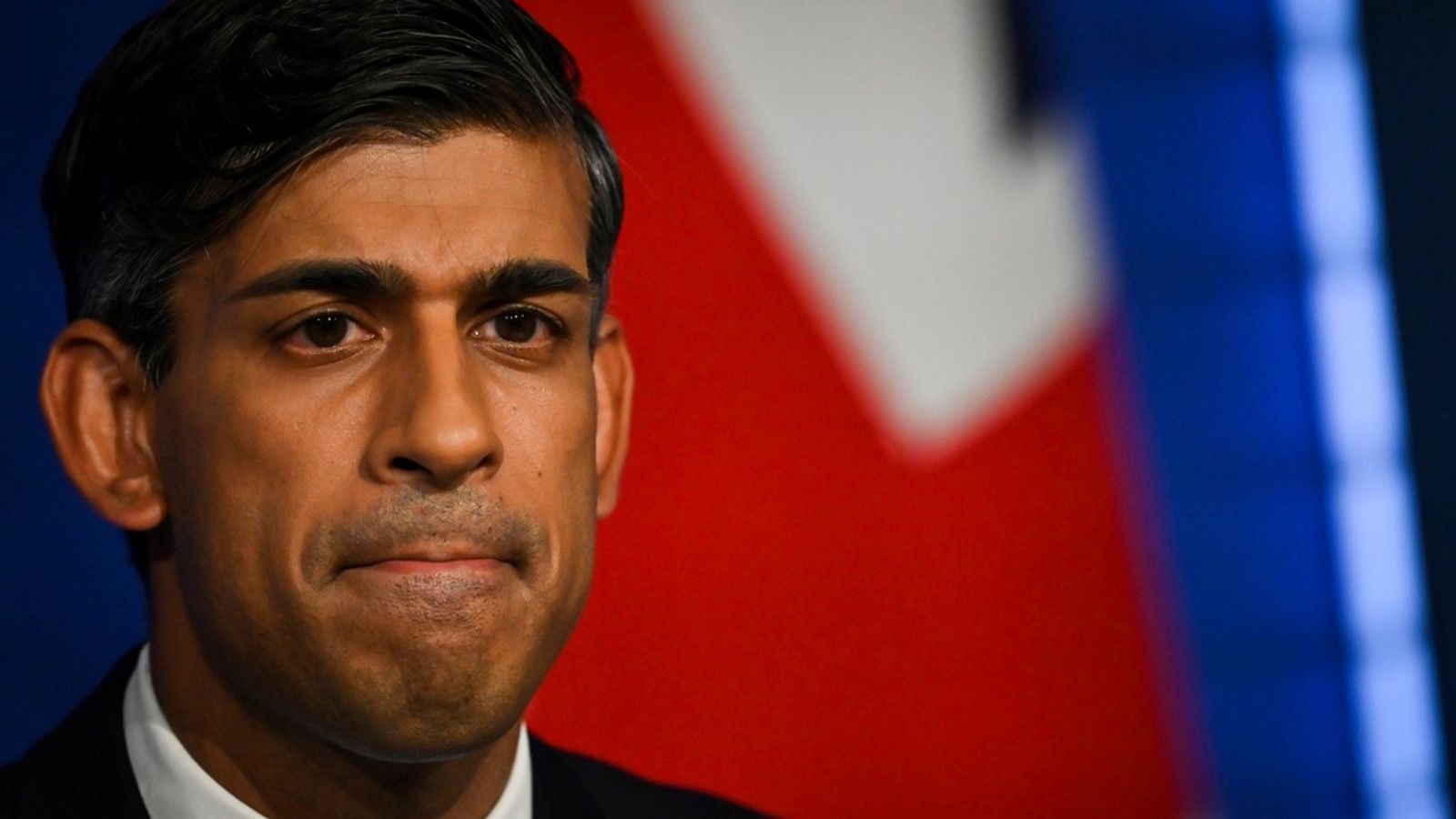Prime Minister Rishi Sunak’s recent delay to key climate targets will actually cost households more, rather than saving them money as he claimed, his own climate advisers have concluded.
In September, Mr Sunak pushed back the end of new petrol and diesel car sales from 2030 to 2035, and scrapped a plan to make landlords improve the energy efficiency of their properties, which would have saved renters money on bills.
He also said 20% of households would not have to replace their gas boilers with a low-carbon alternatives.
Amid scepticism over the prime minister’s claims he was saving homes thousands of pounds, the Climate Change Committee (CCC), ran the numbers on the impact on people’s pockets.
It found renters will have to pay more for energy in less efficient homes, while drivers who move to electric cars later rather than sooner will face higher costs through their vehicle’s lifetime.
Professor Piers Forster, chair of the CCC, said: “Our position as a global leader on climate has come under renewed scrutiny following the prime minister’s speech.
“We urge the government to restate strong British leadership on climate change in the crucial period before the next climate summit, COP28 in Dubai.”
Mr Sunak said the government remained committed to net zero by 2050, which means cutting emissions as much as possible and offsetting the rest.
The CCC, which had in June already warned the UK was moving too slowly to meet its climate targets, said the prime minister had failed to provide any evidence to prove the new changes were compatible.
Whereas the government’s policy had been to phase out all new gas boilers in buildings by 2035 and replace them with heat pumps or other low-carbon methods, Mr Sunak’s speech in September announced that 20% of households would be exempt to save steep costs on households that couldn’t afford it.
Professor Rob Gross, director of UK Energy Research Centre, told Sky News: “Overall the CCC response makes clear that the commitments made by government created a self-fulfilling prophecy of failure – ambitious targets, inadequate delivery policy, and ultimately the conclusion that policies needed to be abandoned.
“If the government knew for years that some people would be negatively impacted then they could have made provision to protect those people rather than roll-back on targets.”
In its analysis, the CCC welcomed some of the changes, such as the mandate on Zero Emissions Vehicles (ZEV), which should see 80% of new cars sold with zero emissions by 2030.
It said the ZEV mandate will likely offset Mr Sunak’s delay to selling fossil fuel cars, but warned the change could weaken business and consumer confidence in the industry.
Richard Hebditch, UK director of transport and environment, told Sky News: “The CCC is right – the ZEV mandate has been an overtly positive step in the right direction from the government.
But he agreed about the risk to business confidence, saying: “We need to give not just vehicle manufacturers, but critical material suppliers and charging infrastructure installers, absolute confidence in what we’re aiming for and when. That will result in robust investment, widely available charging, and cheaper options for consumers – making the switch to electric vehicles a complete no-brainer for people.”
John Flesher, deputy director of the Conservative Environment Network, said: “The prime minister is right that we need to bring people with us on the road to net zero. Expecting too much from households could undermine the country’s current consensus on the need to act on climate change.
The analysis comes as Labour this week made climate action a key part of its pitch to voters during its party conference.
Mr Flesher added: “Conservatives cannot afford to lose their grip on the net zero narrative and must present a compelling, market-based route to net zero.
“The Conservative Party has spent years building up its credibility on an issue that continues to remain popular with voters. The prime minister should harness the party’s environmental reputation to help build a popular and positive narrative going into the next election and not allow Labour to dominate this issue.”
